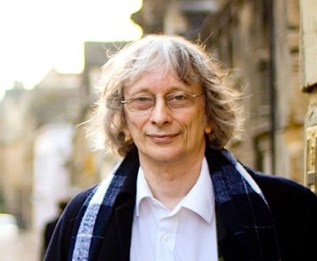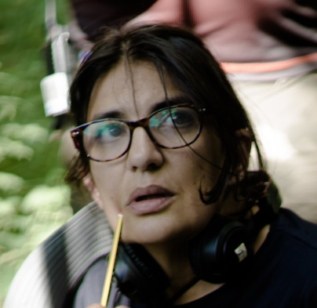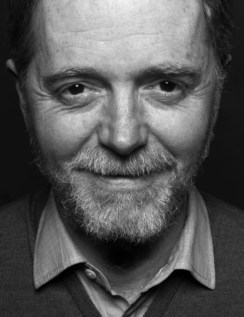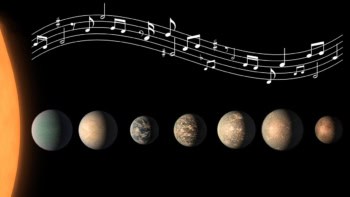Graham Jones talks to physicist David Deutsch, film-maker Olga Osario, and academic-turned-novelist Gianfranco D’Anna about the use of science in fiction
Many commentators have pondered the relationship between science and science fiction. Some 20 years ago, Physics World wondered whether the use of sci-fi could help reverse the fall in the number of students studying physics, and more recently reminded us that Star Trek has “inspired countless of today’s scientists and astronauts”.
But it’s a complicated relationship. The “science” part of science fiction can be tenuous, from the obvious – “aspiring screenwriters, repeat after me: you don’t explode in space” – to the not-so-obvious, such as the recent devastating news that wormholes, upon which so much sci-fi depends, might not be a solution for faster-than-light travel after all.
As for the “fiction” part, well, “the whole of western literature has not been kind to scientists and is filled with images of scientists meddling with nature with disastrous results,” notes Lewis Wolpert, a fellow of the Royal Society. “And where is there a film sympathetic to science?”
So how important is the science in science fiction? And does it matter if books and films created for entertainment largely ignore the rules of physics? To help answer these questions, I sought out three different perspectives: from a physicist who has written about science; a film-maker who has won an award for her sci-fi short; and a novelist who once worked in scientific research.
The physicist and philosopher: David Deutsch
A founder member of the Centre for Quantum Computation at Oxford University’s Clarendon Laboratory, David Deutsch is known as the father of quantum computing. He has written two non-fiction books aimed at the general reader: The Fabric of Reality and The Beginning of Infinity.
 “The trouble is that the requirements of drama are very different from the requirements of science. If you want to make a film that genuinely represents science, you’ve got to explain the scientific problem. And you’re doing well if you can explain a real scientific problem in a one-hour TV documentary. If you did that in a feature film, that would take up one hour of the film already. So you’ve got to compromise on something.
“The trouble is that the requirements of drama are very different from the requirements of science. If you want to make a film that genuinely represents science, you’ve got to explain the scientific problem. And you’re doing well if you can explain a real scientific problem in a one-hour TV documentary. If you did that in a feature film, that would take up one hour of the film already. So you’ve got to compromise on something.
Some science fiction is perhaps better called technology fiction. You imagine a piece of technology that doesn’t exist yet, but could exist in the future, and then you work out its consequences. The thing is there that it’s not really science, in that you’re not exploring the scientific problem and how it was solved. You’re starting with a piece of technology that is given, and its features rely on ideas that people already understand.
If something is a very good science fiction film, it usually doesn’t have very good fictional science – it usually has bad fictional science. Total Recall is a rip-roaring action adventure which hardly draws on the scientific premise at all, and where it does, it’s not done very well. But I think it’s still a very good film.
I think it is possible to make a genuine science-fiction film. It would take a master film-maker combined with somebody – let’s say a historian of science, if you’re going to do a real science story – who’s obsessed with a particular episode, and who can convey to the film-makers what was exciting to the people at the time, and why. And then they would have to hammer out how to convey that in this impossibly short time.
With a fictional science story, you’ve got the benefit that you can make up the science to fit the story. But to invent that fictional science with the dead ends and the failures and why it was exciting in the first place… I think that’s probably too difficult.”
The film-maker: Olga Osorio
Olga Osorio’s sci-fi short Einstein-Rosen – the story of Óscar and his younger brother Teo, who may or may not have found a wormhole outside their apartment building – won Best Fiction Film at last year’s CineGlobe Film Festival at CERN. You can watch the nine-minute film on Vimeo.
 “When we talk about the relationship between art and science, I think it is us, the art people, who have the problem more than the scientists. Scientists can go to watch films and listen to music, and so art is part of their life. But for artists, science can feel like a forbidden place.
“When we talk about the relationship between art and science, I think it is us, the art people, who have the problem more than the scientists. Scientists can go to watch films and listen to music, and so art is part of their life. But for artists, science can feel like a forbidden place.
With Einstein-Rosen, I was afraid. I thought, there is a lot of science in this film, and I’m not a scientist. I feel a huge attraction to scientific subjects, I’m a curious person, I want to know everything about everything. But because I don’t have a formal education in science, I was shy about talking about scientific things.
I was sure I was making a lot of mistakes, and I thought I needed a scientific person to give me advice. But if I got too much scientific advice, maybe I wouldn’t have been free to tell the story. In the end, because the story is supposed to be a joke, and because it’s only a short film, I decided OK, I’m going to do it. Nobody’s going to get hurt!
But I think it’s true that people from the artistic side are afraid of scientific things. We have this separation between science and art, and it’s terrible. When Einstein-Rosen was shown at CERN, I loved going to that place, but at the same time I was thinking, oh, I’m in the middle of all these scientists, and they’ll know I’m an impostor! And we won the prize, and they said something important to me: we need people like you who are able to tell our stories. And I thought, OK, I can do that.
For me, it doesn’t make sense that science and art are so separated. Artists and scientists have something very important in common: curiosity. I love science, but in my formal education, when I was 16, I had to choose between humanities and science. Why? This separation impoverishes all of us.”
The scientist turned novelist: Gianfranco D’Anna
After a scientific career that took him from the Ecole Polytechnique Fédérale de Lausanne in Switzerland to the famed Bell Labs in New Jersey, Gianfranco D’Anna become a novelist. His latest book, 60.7 Nanoseconds, is a fictionalized account of the 2011 faster-than-light neutrino claim.
“There is a problem with the science-fiction fantasy of the genius who discovers all. Real science is more interesting than that. It’s the work of many, many people who are very clever, and work on the same subject at the same moment. It’s a community, it’s never the work of one person. Dr Frankenstein, on his own, in a castle? Doesn’t exist. Never existed. It’s not possible.
The genius has become the kind of ideal scientist. But the reality is never like this. Of course there are brilliant scientists – no discussion. But there is a bit of randomness in this process, especially today. At some point, one person in one lab has the chance of seeing something before the others. And maybe this person discovers something that is very important, but it could have been the next-door person. They’re all very good. There’s an element of chance.
The idea that science is done by geniuses is not only misleading, it’s counter-productive. When you have a young real-life student and they don’t do well on an exam, they say, ah, I’m not a genius, so I cannot become a scientist. This puts a limitation on young people’s ambitions.
Real science, the same as real life, is a succession of errors, hard work, gratification and disappointment. Telling this story ‘as it is’ is the best way to bring readers close to the collective enterprise that is the construction of scientific knowledge.
And if a particular project ends up in a blind alley, as in the faster-than-light neutrino saga, or if some form of misconduct is at play, as can occasionally happen, the story becomes even more worth telling because when science fails, it always teaches us something.”





